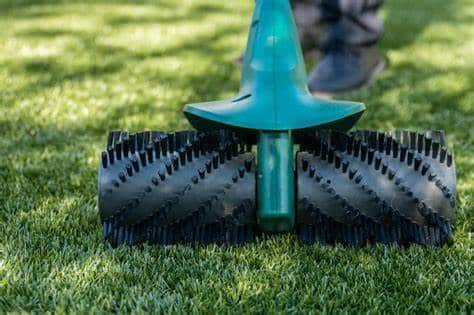Why You Should Not Use Harsh Chemicals On Artificial Grass To Prevent Debris Carlsbad?

- Artificial grass is made from synthetic materials that can be sensitive to harsh chemicals. Chemicals like bleach or acidic cleaners may cause the turf to break down over time, leading to brittleness and discoloration. This deterioration not only affects the appearance but can also lead to the need for premature replacement, which is neither cost-effective nor environmentally friendly.
- Harsh chemicals can leach into the ground and contaminate the soil and groundwater. This is particularly concerning if your artificial turf is near a garden or natural grassy area, as the chemicals can affect the surrounding flora and fauna. Furthermore, runoff from rains can carry these pollutants into the sewage system, eventually leading to rivers, lakes, and oceans, where they can harm aquatic life.
- If you have children or pets that play on the artificial grass, using harsh chemicals poses a significant health risk. Skin contact or accidental ingestion of residue from these substances can lead to allergic reactions, chemical burns, or poisoning. Moreover, the fumes from volatile chemicals can be harmful when inhaled, potentially causing respiratory problems or other health issues.
- Chemicals are not discerning; they may not only remove debris but also affect the structural integrity of the artificial grass blades. The fibers can become frayed or matted, leading to an unsightly appearance and uneven surface, which is particularly problematic for playing fields or decorative landscapes where aesthetics are crucial.
- There are numerous effective, eco-friendly alternatives to harsh chemicals that can save you money. By using gentle soaps, vinegar solutions, or even just water for regular maintenance, you prevent the additional costs associated with chemical cleaners. Furthermore, non-toxic homemade solutions are often just as effective at keeping your turf clean and debris-free.
FAQs
What Are The Best Practices For Cleaning Artificial Grass?
Regularly remove debris with a leaf blower or a plastic rake. For stains, use a mixture of water and mild detergent, and for a deeper clean, a vinegar and water solution can be quite effective. Always avoid metal brushes or anything that could damage the turf fibers.
Can I Use Vinegar On Artificial Grass?
Yes, diluted vinegar is a safe and eco-friendly option for cleaning artificial grass. It can help to remove odors and light stains without damaging the turf. However, it should be used sparingly and diluted with water.
How Do I Prevent Weeds From Growing On Artificial Grass Without Chemicals?
Weed growth can be prevented by installing a weed barrier underneath the artificial grass during installation. For maintenance, regularly brushing and aerating the turf can discourage weed seeds from settling.
Conclusion
The use of harsh chemicals on artificial grass is a practice that poses unnecessary risks to the environment, health, and the artificial turf itself. Opting for gentler cleaning methods and routine maintenance not only preserves the quality and longevity of the turf but is also a responsible choice for the well-being of our planet and its inhabitants. Remember, the goal is to enjoy the benefits of artificial grass without the environmental footprint or health hazards associated with chemical cleaners. By making mindful choices, we can keep our green spaces – artificial or not – clean and safe for everyone. For more information, contact Artificial Turf Carlsbad at (760) 991-3400.

